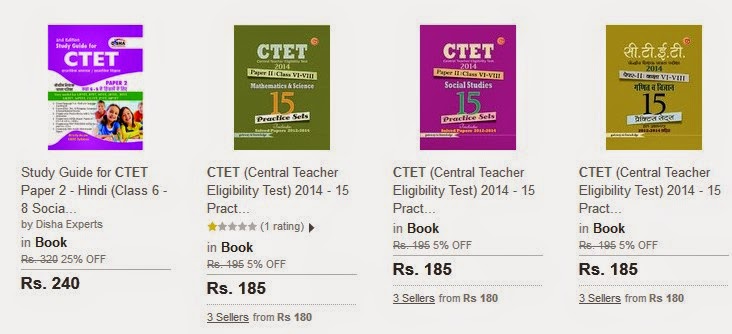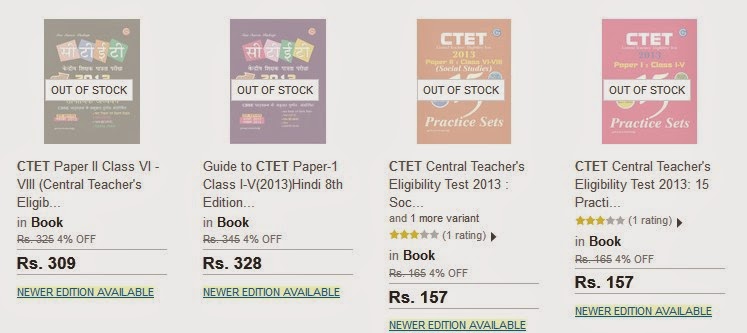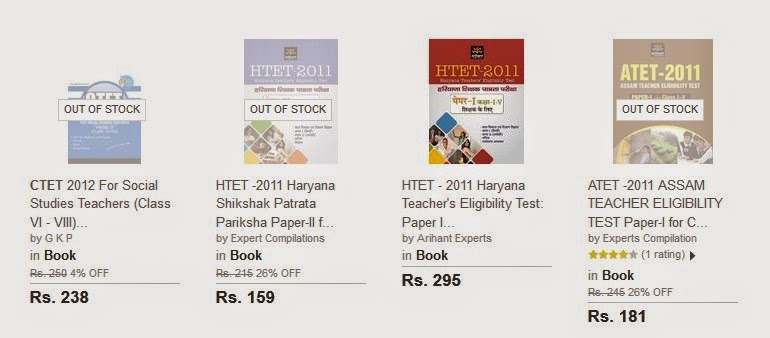Disclosure of Other Employee's ACR is permitted under RTI / CIC Decision
It is not confidential and right of Citizen's to ask any officer's / Government Servent / Public Employee
Citizens/ Employee of an organization can see other officer/employee's ACR (Annual Confidentail Report)
See Decision : http://www.rti.india.gov.in/cic_decisions/CIC_SG_A_2011_002016_15380_M_69526.pdf
----------------------------------------------
CENTRAL INFORMATION COMMISSION
Club Building (Near Post Office)
Old JNU Campus, New Delhi - 110067
Tel: +91-11-26161796
Decision No. CIC/SG/A/2011/002016/15380
Appeal No. CIC/SG/A/2011/002016
Relevant facts emerging from the Appeal:
Appellant : Dr. Ashok Kumar, Scientist D
Division of Genetics and Tree,
Propagation Forest Research Institute,
Dehradun - 248195
Respondent : Dr. Devendra Kumar,
Public Information Officer & Scientist,
Ministry of Environment and Forests.
Indian Council of Forestry Research and Education,
New Forest, Dehradun – 248006,
Uttarakhand
RTI application filed on : 12/05/2010
PIO replied on : 17/06/2011
First Appeal filed on : 10/06/2011
First Appellate Authority order of : 08/07/2011
Second Appeal received on : 23/07/2011
Information sought:
“Information regarding adverse remarks against appellant in APAR 2099-2011. A remark was made
that the appellant had ‘failed to control the unlawful involvement of PLO Dr. Paramjit Singh…’
1. Information pertaining to this incidence particularly on
i. Copy of information / complaint by and individual or group of individuals.
ii. Copy of the letter /l note sheet pertaining to composition of any enquiry committee.
iii. Copy of charge-sheets or other procedural steps undertaken as per governmental rules.
iv. Copy of FIR launched.
v. Copies of all other related letters / communication / note – sheets.
vi. Copy of the document issued by competent authorities on punishment to Dr. Pramjit Singh
2. Was an adverse entry made in ACR OF Head, Extension Division, FRI, Dehradun or any other
controlling officer to whom Dr. Sing was directly, reporting for not controlled his unlawful in
evolvement in womanizing at Scientist Hostel on 23.10.2009?
i. If yes supply the copy of ACR of the then HoD of Extension Division and other controlling
officer.
ii. If not, motive thereby for not making adverse entries an the ACR of controlling officers.
3. Was there any complaint(s) for such unlawful involvements in past also against PLO, if yes supply
copies of the same on,
i. Complaint (s) and action taken against PIO during that time.
ii. Proof of adverse entry was made in the ACR of the then Watch and Ward officers.
iii. Proof of adverse entry was made in the ACR of his controlling officers.
Page 1 of 4
4. Supply copy of rules that define/ indicate Watch and Ward Officer’s responsibility to (a) control
PLO and Wardens of Hostels and (b) check the activities carried out in rooms of Scientist Hostel
and guest house.
5. Supply copy of the complaints of sexual harassments received in headquarters of ICFRE and FP---
January 2005 onwards and the action taken on each complaint and their reflections in the ACRs/---
6. Kindly provide the copies of ACRs/ APARs for, following Scientists for the years 2007-08, 2008-09
and 2009-10.
i. Dr. H S Ginwal, Scientist E and Head, G&TP Division FRI, Dehradun.
ii. Dr. Santan Barthwal, Scientist, G&TP Division FRI Dehradun.
iii. Ms Parveen, Scientist, G&TP Division FRI Dehardun.
iv. Dr. Rajiv Pandey, FRI/ ICPRE, Dehradun (Watch and Ward Officer upto Oct.2008.
v. Dr. Ajay Thakur, Scientist Botany Division FRI Dehradun (attended XII WFC, Argentina).
vi. Dr. Madhumita Ghosh, Scientist, IPGTB, Coimbatore (attended XII WFC, Argentina).
vii. Dr. B N Diwakar, Scientists, IFP, Ranchi ( aattended XII WFC, A rgentina)”
Reply of Public Information Officer (PIO):
“Information means any material in any form including records documents, memo, e-mails, opinions,
advices, press releases, circulars, orders, logbooks, contract reports, papers, samples, models, data
material held in any electronic form and information relating to any private body which can be
accessed by a public authority under any other law fork the time being in force.
Most of the points on which clarification has been sought are not covered as information under
the Act. As you are working as Scientist ‘D’ in the FRI Dehradun where a public Information officer
( Establishment Watch & Ward and other Administrative matters) is functioning you have to apply to
him for furnishing information on the points related to watch & ward matters. However, our application
is being transferred to the concerned PIO under Sec. 6(3) of the Act for furnishing relevant information
fi any on SL. No. 1,3,4 & 5 of your application. Clarification sought in SL. No. 2 of the application
cannot be termed as information. Hence is not covered under the Act As regard SL. No 6 asking for
copies of ACRs/APARs of some other officers that cannot he supplied being the 3rd party information in
terms of the provision under Sec. 8(j) of the RTI Act 2005.”
Grounds for First Appeal:
The appellant was received an unsatisfactory reply from the PIO.
Order of First Appellate Authority (FAA):
“In this connection it is to inform that the (PIO, ICFRE (hqrs.). Dehradun has already served a reply to
you vide letter dated 17th June 2011. A Copy of the same is enclosed herewith again for ready reference.
The observations made by the CPIO, ICFRE is as per the provisions of RTI Act.”
Grounds for Second Appeal:
Dissatisfied with information provided and order of FAA.
Relevant Facts emerging during Hearing:
The following were present:
Appellant: Mr. Ashok Kumar;
Respondent: Dr. Devendra Kumar, PIO & Scientist via video conference from NIC Studio- Dehradun.
The PIO states that he took over as PIO on September 2011 and has sent information on queries 1 and 5
on 24/10/2011 and 28/10/2011 respectively, which has been received by the Appellant. The PIO has not
provided information on queries 2 and 3 without any adequate reason and claims that he has provided
information on query 4. The Appellant claims that he has not received information on query 4. As
Page 2 of 4
regards query 6, the PIO claims that information about the ACRs/ APARs of other officers cannot be
provided as this is exempt under Section 8(1)(j) of the RTI Act.
Under Section 8 (1) (j) of the RTI Act, information which has been exempted is defined as:
“information which relates to personal information the disclosure of which has no relationship
to any public activity or interest, or which would cause unwarranted invasion of the privacy of
the individual unless the Central Public Information Officer or the State Public Information
Officer or the appellate authority, as the case may be, is satisfied that the larger public interest
justifies the disclosure of such information: …”
To qualify for the exemption under Section 8(1)(j) of the RTI Act, the information must satisfy the
following criteria:
1. It must be personal information: Words in a law should normally be given the meaning given in
common language. In common language, we would ascribe the adjective 'personal' to an attribute
which applies to an individual and not to an institution or a Corporate. Therefore, it flows that
'personal' cannot be related to institutions, organisations or corporates. Hence Section 8(1)(j) of the
RTI Act cannot be applied when the information concerns institutions, organisations or corporates.
2. The phrase 'disclosure of which has no relationship to any public activity or interest' means that
the information must have been given in the course of a public activity. Various public authorities in
performing their functions routinely ask for 'personal' information from citizens, and this is clearly a
public activity. Public activities would typically include situations wherein a person applies for a job,
or gives information about himself to a public authority as an employee, or asks for a permission,
licence or authorisation, or provides information in discharge of a statutory obligation.
3. The disclosure of the information would lead to unwarranted invasion of the privacy of the
individual. The State has no right to invade the privacy of an individual. There are some
extraordinary situations where the State may be allowed to invade the privacy of a citizen. In those
circumstances special provisions of the law apply usually with certain safeguards. Therefore where
the State routinely obtains information from citizens, this information is in relationship to a public
activity and will not be an intrusion on privacy.
Certain human rights such as liberty, freedom of expression or right to life are universal and therefore
would apply uniformly to all human beings worldwide. However, the concept of 'privacy' is a cultural
notion, related to social norms, and different societies would look at these differently. Therefore
referring to the Data Protection Act, 1988 of U. K. or the laws of other countries to define ‘privacy’
cannot be considered a valid exercise to constrain the citizen’s fundamental right to information in India.
Parliament has not codified the right to privacy so far, hence, in balancing the right to information of
citizens and the individual's right to privacy, the citizen's right to information would be given greater
weightage.
In the instant case, there is no doubt that the information sought is “personal” information inasmuch as it
is the Annual Confidential Report of a government officer. The ACR is a report that evaluates the work
and performance of a public servant. The public authority concerned, must necessarily have this
information so to make an assessment of its officers’ performance. The ACR, containing certain
information about the officer is disclosed by the officer to the public authority and such report is
prepared by the public authority. This is necessarily done in the course of a public activity. Disclosure of
such information cannot be construed as unwarranted invasion of privacy of the officer concerned as it
concerns issues raised in the exercise of his public activity as a public servant. Moreover, a public
Page 3 of 4
servant is accountable to the public and therefore, every citizen has the right to obtain information that
may assess his credibility, integrity and performance.
It is pertinent to mention that the Supreme Court of India in Union of India v. ADR in Appeal (Civil) 178
of 2001 and W. P. (Civil) 294 of 2001 decided on 02/05/2002, observed that persons who aspire to be
public servants by getting elected have to declare inter alia their property details, any conviction/
acquittal of criminal charges, etc. It follows that persons who are already public servants cannot claim
exemptions from disclosure of charges against them or details of their assets. Given our dismal record of
misgovernance and rampant corruption which colludes to deny citizens’ their essential rights and
dignity, it is imperative for achieving the goal of democracy that the citizens’ right to information is
given greater primacy with regard to privacy.
Therefore, disclosure of information such as property details, any conviction/ acquittal of criminal
charges, etc of a public servant, which is routinely collected by the public authority and provided by the
public servants, cannot be construed as an invasion of the privacy of an individual and must be provided
an applicant under the RTI Act. Similarly, citizens have a right to know about the strengths and
weaknesses as well as performance evaluation of all public servants. The government is elected by the
citizens of India and it is the duty of such government through its officers to protect the rights of the
citizens. The salary of such government officers is also paid from the public exchequer. For these
reasons, every citizen has the right to know and obtain information about the performance of every
public servant or government officer to ascertain whether the duties entrusted to such public servant or
government officer are being carried out.
It would not be out of place to mention that the terminology “Annual Confidential Report” has been
used since the British times when ‘secrecy’ was the guiding notion for the government and
consequently, the work done by the latter was not for the citizens’ perusal and kept confidential. This
was evidenced by the enactment of the Official Secrets Act, 1923. Over the years, this trend has
undergone a drastic change inasmuch as the Indian judiciary recognised the citizen’s right to have access
to information under the control of government entities in order to bring about transparency and
accountability in the functioning of every government department. This was given a statutory ratification
by way of the Right to Information Act, 2005, which recognised the citizen’s fundamental right to
information. The RTI Act endeavours to do away with the notion of ‘secrecy’ which was prevalent in
the British era and carried forwarded thereafter inasmuch as Section 22 of the RTI Act specifically
provides that the RTI Act shall override the Official Secrets Act, 1923 irrespective of any inconsistency
contained in the latter. In view of the foregoing arguments this Commission holds that performance
appraisals,- known as annual confidential reports since the days of British Raj,- are not covered by
Section 8(1)(j) of the RTI Act and disclosure of these cannot be construed as invasion on the privacy of
an individual.
Decision:
The Appeal is allowed. The PIO is directed to provide the information on queries 2, 3, 4 and 6 to the
Appellant before 20 November 2011.
This decision is announced in open chamber.
Notice of this decision be given free of cost to the parties.
Any information in compliance with this Order will be provided free of cost as per Section 7(6) of RTI Act.
Shailesh Gandhi
Information Commissioner
31 October 2011
(In any correspondence on this decision, mention the complete decision number.)(SU)
Page 4 of 4



































































